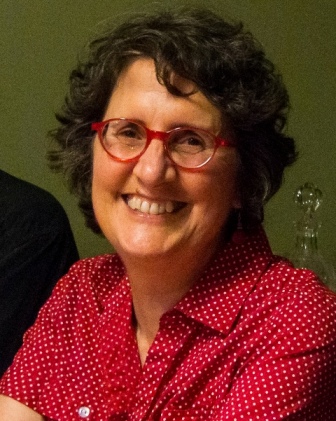Title IX cases highlight institutional betrayal
Big names in academia gave shameful public lessons recently on what institutional betrayal looks like.
At Harvard University, 38 faculty members signed an open letter challenging the university’s decision to bar anthropologist John Comaroff from teaching or taking on new advisees after two investigations supported reports of his sexual and professional misconduct. The signers included famous academics and public figures. But then 73 Harvard faculty released a letter blasting their colleagues for rushing to defend the alleged abuser without knowing all the facts, thus publicly betraying student victims in a way that could pressure other victims not to report misconduct.
After three students sued Harvard for ignoring Comaroff’s harassment and abuse, almost all the signers of the first letter retracted their support, saying they regretted signing it. What changed their minds? You can read the details in the complaint here. And it shows how rushed and one-sided their initial letter was.
That, kids, is what’s called institutional betrayal. It’s when people in power, or in elite positions, or who are part of an institution, protect themselves, their elite peers, or their institutions instead of doing the right thing. It’s rampant. It’s well-documented. And it causes additional psychological harms to victims of sexual harassment and assault on top of the original abuse, studies show. Some great minds have been strategizing about how best to counter such an entrenched human trait. You can dive into their thinking and learn some good strategies at the Center for Institutional Courage.

The top image of Harvard University banners is via Wikimedia Commons/PaWikiCom.
It’s not just Harvard, obviously. Other egregious examples of potential institutional betrayal unfolded this past week at California State Universities in San Jose and Fresno, among other places.
And it’s not just men in power doing the betraying. San Jose State University administrators kept secret emails received and ignored by President Mary Papazian that warned about years of sexual abuse by an athletic trainer, Scott Shaw. It also warned of a toxic culture created by then-deputy athletic director Marie Tuitte. Papazian then promoted Tuitte and let Shaw go on practicing and allegedly abusing for another four years. The university last year agreed to pay $3.3 million to settle a lawsuit by 15 students, on top of paying $1.6 million to 13 other survivors.
Also in California, USA Today reported that Fresno State stonewalled the release of reports from an investigation of alleged sexual misconduct by administrator Frank Lamas and sought a non-disclosure agreement in order to release them, which helped derail a possible legislative audit of the university. Former Fresno State President Joseph I. Castro said bureaucratic rules tied his hands in the matter, but some experts said he could have done more. Castro now is chancellor of the entire state university system. State legislators are pushing for an investigation.
As of early February 2022, the Department of Education’s Office for Civil Rights was investigating nearly 1,200 reports of Title IX violations across the country, according to the Kansas City Star. The epidemic of sexual assaults on campus — and of institutional betrayal — goes on and one.
Elsewhere
The University of California agreed to pay $243 million to settle claims that UCLA gynecologist Dr. James Heap sexually abused around 200 women. Heaps is expected to go to trial on criminal charges later this year. The UCLA payments would be on top of an earlier agreement to pay $73 million to settle a class-action suit by many other women.
A student sued Utah State University, claiming officials ignored and abanoned her after she reported being raped by a football player.
Women rowers sued San Diego State University, claiming the school cheated women out of athletics scholarship money. The suit is thought to be the first Title IX lawsuit asking for monetary damages in athletics. The women seek $1.2 million.
Five months after the University of Iowa Athletics ended a lawsuit against it by agreeing to hire an outside Title IX expert (among other actions), they haven’t done so.
More than 40 students have joined a class-action lawsuit against the U.S. Department of Education to try and overturn its policy granting blanket exemptions from Title IX to any schools that want to discriminate against transgender students on supposedly religious grounds.
Eastern Michigan University agreed to enter mediation in two lawsuits by 23 women and one man over a series of sexual assaults on campus.
Tarrant County College, Texas, launched an investigation into claimed retaliation by Chancellor Eugene Giovannini against an employee who disciplined someone with whom Giovannini was having an affair.
A student at Vanderbilt University started an Instagram account to let student survivors of sexual assault there tell their stories anonymously in order to avoid retaliation and find some support from others. Similar online accounts have appeared on social media sites for college or high school students to tell their stories, some even naming the alleged rapists. Before social media, in the 1980s and 1990s, women at a number of colleges would write the names of their rapists on bathroom walls. Janitorial staff would wipe it off, and the activists would rewrite the names. Rinse and repeat.
A student survey at Cal Poly Humboldt, Calif. found higher rates of sexual assault on transgender students. Among the survey respondents, 36% of trans students reported being sexually assaulted, as did 17% of cisgender women, 13% of cisgender men, and 13% of students who didn’t specify a gender. Only 26% of the assaults were by strangers; the rest were by people the victims knew. And 69% of those assaulted said they did not report the incident to campus officials or police, which may indicate a lack of trust that reporting would help.
Colorado’s Cherry Hill School District is being investigated for alleged sex and race discrimination.
On the up side
Tennis superstar and Women’s Sports Foundation co-founder Billie Jean King performed the coin toss to open the Super Bowl football championship game, accompanied by youth football players including team captains for the California School for the Deaf Riverside Cubs and players from the High School Girls Flag League of Champions and the Inglewood Chargers and Watts Rams. It was the NFL’s way of paying tribute to Title IX’s 50th anniversary.
Michigan State University changed its rules to make it easier to revoke tenure for faculty whose inappropriate behavior amounts to “gross wrongdoing.”
More than 70 organizations across Indiana signed an open letter opposing proposed legislation that would ban transgender girls from playing school sports.
Where you’ll find me
February 23, 1:00-2:30 p.m. ET — I’ll be speaking on a virtual panel at the American Historical Association online meeting. Though originally scheduled for the live meeting in New Orleans, it switched to an online panel.
February 16, 4:30-6:30 p.m. ET — I’ll be leading a two-hour Zoom class on Title IX history for the Osher Center for Lifelong Learning at Dartmouth this month.
March 2022 — The New York Historical Society’s Center for Women’s History & Academic Affairs will stream a prerecorded discussion with me and some of the earliest Title IX activists. I’ll be speaking with National Women’s Law Center founder Marcia Greenberger and Holly Knox, founder of the Project on Equal Education Rights, plus surprise guests. Part of the Max Conference on Women’s History, the discussion streams online in March for Women’s History Month.
On April 2, 1:30-3:00 p.m ET — I’ll be in Boston speaking on a panel at the Organization of American Historians annual conference.
April 12, 7:00 p.m. ET — Join me for a hybrid 37 Words book launch event live at Norwich Bookstore and virtually. Details to come!
April 13, 2:00-3:00 p.m. ET — I’ll Zoom to a lively discussion with Kenyora Parham, executive director of End Rape on Campus, as we talk about 37 Words during Sexual Assault Awareness Month. I’ll post links when available.
April 20, 7:00 p.m. PT — I’m coming to the West Coast for an author reception in Fresno, Calif. at the Manhattan Steakhouse and Bar. Stay tuned for details, Central Valley folks!
And I’m cooking up other events to celebrate the publication of 37 Words. Stay tuned for more on those.
You’ll find links to preorder 37 Words: Title IX and Fifty Years of Fighting Sex Discrimination here. Preorders are so helpful! Thanks for your support.









Fascinating and sad. I was discouraged to see my alma mater represented in this list and hope they will act as a result of the survey data. Really interesting post, as usual.